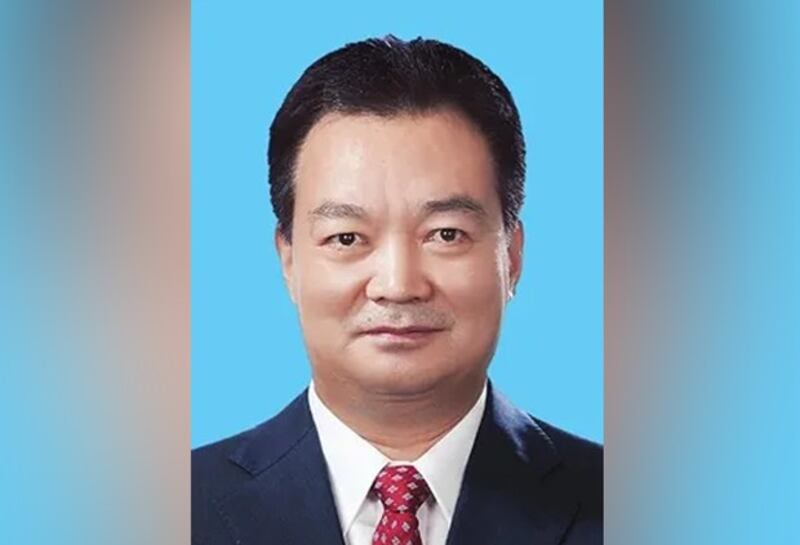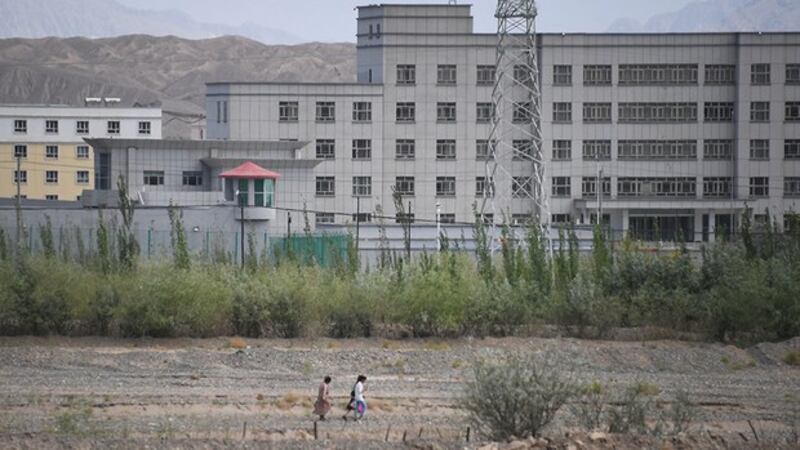The newly appointed Chinese Communist Party (CCP) boss in Tibet, a hardline apparatchik under multiple international sanctions for severe human rights abuses in neighboring Xinjiang, is expected to apply to Tibet’s Buddhists the same harsh policies carried out against the Muslims in Xinjiang, Tibetans and experts said.
WangJunzheng, deputy CCP boss and security chief in the Xinjiang Uyghur Autonomous Region (XUAR), has overseen atrocities against the Uyghurs and other Turkic minorities in the XUAR that have been labeled genocide in Western capitals.
Tibet advocates greeted the announcement Monday of the promotion of the 58-year-old Wang with concern that he will take the repression Tibetans have known for decades to a higher-level, and they called for the continuation of coordinated sanctions on him by Britain, Canada, the European Union and the U.S.
“Wang Junzheng’s appointment as head of the Tibet Autonomous Region Party Committee indicates that the Chinese authorities intend to continue using an iron fist to control the Tibetan people,” said the International Campaign for Tibet, an advocacy group with offices in Washington, D.C. and Europe.
“ICT expects Wang to bring his experience to Tibet as part of the party’s Tibet-Xinjiang feedback loop. Chen Quanguo, his boss in Xinjiang, took his Tibet experience as the party secretary from 2011 to 2016 to Xinjiang, where he has led the Chinese government’s ongoing, horrifying genocide of the Uyghurs,” the group said in a statement.
Chen moved to the XUAR capital Urumqi in August 2016 after five years as party boss in Tibet, where he built up security measures and surveillance, suppressed support for the Dalai Lama, Tibet’s spiritual leader whom Beijing accuses of being a separatist, and criminalized many ordinary religious and cultural activities.
Wang’s promotion, part of a slate of new CCP leaders appointed in seven provincial-level governments across China ahead of a party congress next year, comes five years after Chen took over as XUAR party boss and locked up some 1.8 million Uyghurs and other Muslim minorities in a network of internment camps in the name of fighting terrorism and extremism.
“Wang Junzheng’s reign promises to be for Tibetans as bad as Chen Quanguo’s, or worse,” the online religious freedom website Bitter Winter said in an analysis.
“Indeed, his appointment in Tibet is a slap in the face of the United States and democratic countries in general. The ‘butcher of Xinjiang’ not only is not reined in by Beijing, he is promoted to higher office,” the Italy-based website said.

'Sinicization of the Tibetan Buddhism'
In a speech in the Tibet Autonomous Region (TAR) capital Lhasa on Tuesday, Wang did little to dispel the fears of Tibetans.
“I will consider myself a Tibetan from now onwards. My main role and responsibility is to create a harmonious society that is inevitable and will resolutely strike against separatist activities,” he said, according to state media.
“It is necessary to actively guide the Tibetan Buddhism to adapt to the socialist society and promote the Sinicization of the Tibetan Buddhism."
Wang was among XUAR officials hit with travel bans and asset freezes in March by Britain, Canada, the EU and the U.S., The quasi-military Xinjiang Production and Construction Corps’ Public Security Bureau, where Wang served as political commissar, was also penalized.
“I need to stress that I have no interest at all in travelling to the European Union, the United States, Britain or Canada,” Wang told state media at the time.
“I don’t have a cent of savings in these places.”
XUAR party boss Chen, architect of the detention camp system, was sanctioned under the Global Magnitsky Human Rights Accountability Act, a move that followed the enactment last year the Uyghur Human Rights Policy Act of 2020, which provides for sanctions on the Chinese officials who implement arbitrary incarceration, forced labor, and other abuses.
“The United States stands with the many Tibetans oppressed and imprisoned by the PRC for the exercise of their human rights,” a State Department spokesperson said in response to an RFA question about Wang’s transfer.
“Tibet remains a priority for this Administration. We will consider the use of all appropriate tools to promote accountability for PRC officials responsible for human rights abuses in Tibet,” the spokesperson told RFA’s Tibetan Service.

'Genocide under his watch'
While the spokesperson did not address Wang’s appointment, Rep. Jim McGovern, chairman of the Congressional Executive Commission on China, an advisory body in Washington, told RFA he is “deeply worried about the promotion of Wang.”
“Wang Junzheng was security chief in Xinjiang when the U.S. government determined the Chinese government was committing genocide under his watch," he said.
“Whether his promotion shows defiance of the U.S. sanctions placed upon him is less important than the worries we have about what he may impose upon Tibetans as party boss in the TAR,” McGovern told RFA.
In Washington on Wednesday, President Joe Biden's nominee to be U.S. ambassador to China, Nicholas Burns, did not mince words on China at his Senate confirmation hearing.
"The PRC's genocide in Xinjiang, its abuses in Tibet, its smothering of Hong Kong's autonomy and freedoms, and its bullying of Taiwan are unjust and must stop," Burns said, listing points of conflict between Washington and Beijing.
Formerly an independent nation, Tibet was invaded and incorporated into China by force nearly 70 years ago, and the Dalai Lama and thousands of his followers fled into exile in India and other countries around the world following the failed 1959 uprising against Chinese rule.
Chinese authorities maintain a tight grip on the region, restricting Tibetans’ political activities and peaceful expression of cultural and religious identity, and subjecting Tibetans to persecution, torture, imprisonment, and extrajudicial killings.
Reported by RFA’s Tibetan and Uyghur Services. Translated by Tenzin Dickyi.
